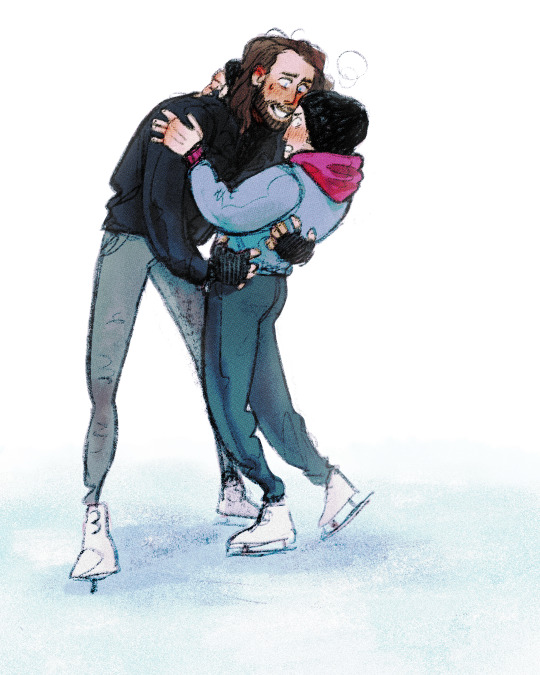#Market Chaos
Text
Greenwashing set Canada on fire

On September 22, I'm (virtually) presenting at the DIG Festival in Modena, Italy. On September 27, I'll be at Chevalier's Books in Los Angeles with Brian Merchant for a joint launch for my new book The Internet Con and his new book, Blood in the Machine.

As a teenager growing up in Ontario, I always envied the kids who spent their summers tree planting; they'd come back from the bush in September, insect-chewed and leathery, with new muscle, incredible stories, thousands of dollars, and a glow imparted by the knowledge that they'd made a new forest with their own blistered hands.
I was too unathletic to follow them into the bush, but I spent my summers doing my bit, ringing doorbells for Greenpeace to get my neighbours fired up about the Canadian pulp-and-paper industry, which wasn't merely clear-cutting our old-growth forests – it was also poisoning the Great Lakes system with PCBs, threatening us all.
At the time, I thought of tree-planting as a small victory – sure, our homegrown, rapacious, extractive industry was able to pollute with impunity, but at least the government had reined them in on forests, forcing them to pay my pals to spend their summers replacing the forests they'd fed into their mills.
I was wrong. Last summer's Canadian wildfires blanketed the whole east coast and midwest in choking smoke as millions of trees burned and millions of tons of CO2 were sent into the atmosphere. Those wildfires weren't just an effect of the climate emergency: they were made far worse by all those trees planted by my pals in the eighties and nineties.
Writing in the New York Times, novelist Claire Cameron describes her own teen years working in the bush, planting row after row of black spruces, precisely spaced at six-foot intervals:
https://www.nytimes.com/2023/09/15/opinion/wildfires-treeplanting-timebomb.html
Cameron's summer job was funded by the logging industry, whose self-pegulated, self-assigned "penalty" for clearcutting diverse forests of spruce, pine and aspen was to pay teenagers to create a tree farm, at nine cents per sapling (minus camp costs).
Black spruces are made to burn, filled with flammable sap and equipped with resin-filled cones that rely on fire, only opening and dropping seeds when they're heated. They're so flammable that firefighters call them "gas on a stick."
Cameron and her friends planted under brutal conditions: working long hours in blowlamp heat and dripping wet bulb humidity, amidst clouds of stinging insects, fingers blistered and muscles aching. But when they hit rock bottom and were ready to quit, they'd encourage one another with a rallying cry: "Let's go make a forest!"
Planting neat rows of black spruces was great for the logging industry: the even spacing guaranteed that when the trees matured, they could be easily reaped, with ample space between each near-identical tree for massive shears to operate. But that same monocropped, evenly spaced "forest" was also optimized to burn.
It burned.
The climate emergency's frequent droughts turn black spruces into "something closer to a blowtorch." The "pines in lines" approach to reforesting was an act of sabotage, not remediation. Black spruces are thirsty, and they absorb the water that moss needs to thrive, producing "kindling in the place of fire retardant."
Cameron's column concludes with this heartbreaking line: "Now when I think of that summer, I don’t think that I was planting trees at all. I was planting thousands of blowtorches a day."
The logging industry committed a triple crime. First, they stole our old-growth forests. Next, they (literally) planted a time-bomb across Ontario's north. Finally, they stole the idealism of people who genuinely cared about the environment. They taught a generation that resistance is futile, that anything you do to make a better future is a scam, and you're a sucker for falling for it. They planted nihilism with every tree.
That scam never ended. Today, we're sold carbon offsets, a modern Papal indulgence. We are told that if we pay the finance sector, they can absolve us for our climate sins. Carbon offsets are a scam, a market for lemons. The "offset" you buy might be a generated by a fake charity like the Nature Conservancy, who use well-intentioned donations to buy up wildlife reserves that can't be logged, which are then converted into carbon credits by promising not to log them:
https://pluralistic.net/2020/12/12/fairy-use-tale/#greenwashing
The credit-card company that promises to plant trees every time you use your card? They combine false promises, deceptive advertising, and legal threats against critics to convince you that you're saving the planet by shopping:
https://pluralistic.net/2021/11/17/do-well-do-good-do-nothing/#greenwashing
The carbon offset world is full of scams. The carbon offset that made the thing you bought into a "net zero" product? It might be a forest that already burned:
https://pluralistic.net/2022/03/11/a-market-for-flaming-lemons/#money-for-nothing
The only reason we have carbon offsets is that market cultists have spent forty years convincing us that actual regulation is impossible. In the neoliberal learned helplessness mind-palace, there's no way to simply say, "You may not log old-growth forests." Rather, we have to say, "We will 'align your incentives' by making you replace those forests."
The Climate Ad Project's "Murder Offsets" video deftly punctures this bubble. In it, a detective points his finger at the man who committed the locked-room murder in the isolated mansion. The murderer cheerfully admits that he did it, but produces a "murder offset," which allowed him to pay someone else not to commit a murder, using market-based price-discovery mechanisms to put a dollar-figure on the true worth of a murder, which he duly paid, making his kill absolutely fine:
https://pluralistic.net/2021/04/14/for-sale-green-indulgences/#killer-analogy
What's the alternative to murder offsets/carbon credits? We could ask our expert regulators to decide which carbon intensive activities are necessary and which ones aren't, and ban the unnecessary ones. We could ask those regulators to devise remediation programs that actually work. After all, there are plenty of forests that have already been clearcut, plenty that have burned. It would be nice to know how we can plant new forests there that aren't "thousands of blowtorches."
If that sounds implausible to you, then you've gotten trapped in the neoliberal mind-palace.
The term "regulatory capture" was popularized by far-right Chicago School economists who were promoting "public choice theory." In their telling, regulatory capture is inevitable, because companies will spend whatever it takes to get the government to pass laws making what they do legal, and making competing with them into a crime:
https://pluralistic.net/2022/06/13/public-choice/#ajit-pai-still-terrible
This is true, as far as it goes. Capitalists hate capitalism, and if an "entrepreneur" can make it illegal to compete with him, he will. But while this is a reasonable starting-point, the place that Public Choice Theory weirdos get to next is bonkers. They say that since corporations will always seek to capture their regulators, we should abolish regulators.
They say that it's impossible for good regulations to exist, and therefore the only regulation that is even possible is to let businesses do whatever they want and wait for the invisible hand to sweep away the bad companies. Rather than creating hand-washing rules for restaurant kitchens, we should let restaurateurs decide whether it's economically rational to make us shit ourselves to death. The ones that choose poorly will get bad online reviews and people will "vote with their dollars" for the good restaurants.
And if the online review site decides to sell "reputation management" to restaurants that get bad reviews? Well, soon the public will learn that the review site can't be trusted and they'll take their business elsewhere. No regulation needed! Unleash the innovators! Set the job-creators free!
This is the Ur-nihilism from which all the other nihilism springs. It contends that the regulations we have – the ones that keep our buildings from falling down on our heads, that keep our groceries from poisoning us, that keep our cars from exploding on impact – are either illusory, or perhaps the forgotten art of a lost civilization. Making good regulations is like embalming Pharaohs, something the ancients practiced in mist-shrouded, unrecoverable antiquity – and that may not have happened at all.
Regulation is corruptible, but it need not be corrupt. Regulation, like science, is a process of neutrally adjudicated, adversarial peer-review. In a robust regulatory process, multiple parties respond to a fact-intensive question – "what alloys and other properties make a reinforced steel joist structurally sound?" – with a mix of robust evidence and self-serving bullshit and then proceed to sort the two by pantsing each other, pointing out one another's lies.
The regulator, an independent expert with no conflicts of interest, sorts through the claims and counterclaims and makes a rule, showing their workings and leaving the door open to revisiting the rule based on new evidence or challenges to the evidence presented.
But when an industry becomes concentrated, it becomes unregulatable. 100 small and medium-sized companies will squabble. They'll struggle to come up with a common lie. There will always be defectors in their midst. Their conduct will be legible to external experts, who will be able to spot the self-serving BS.
But let that industry dwindle to a handful of giant companies, let them shrink to a number that will fit around a boardroom table, and they will sit down at a table and agree on a cozy arrangement that fucks us all over to their benefit. They will become so inbred that the only people who understand how they work will be their own insiders, and so top regulators will be drawn from their own number and be hopelessly conflicted.
When the corporate sector takes over, regulatory capture is inevitable. But corporate takeover isn't inevitable. We can – and have, and will again – fight corporate power, with antitrust law, with unions, and with consumer rights groups. Knowing things is possible. It simply requires that we keep the entities that profit by our confusion poor and thus weak.
The thing is, corporations don't always lie about regulations. Take the fight over working encryption, which – once again – the UK government is trying to ban:
https://www.theguardian.com/technology/2023/feb/24/signal-app-warns-it-will-quit-uk-if-law-weakens-end-to-end-encryption
Advocates for criminalising working encryption insist that the claims that this is impossible are the same kind of self-serving nonsense as claims that banning clearcutting of old-growth forests is impossible:
https://twitter.com/JimBethell/status/1699339739042599276
They say that when technologists say, "We can't make an encryption system that keeps bad guys out but lets good guys in," that they are being lazy and unimaginative. "I have faith in you geeks," they said. "Go nerd harder! You'll figure it out."
Google and Apple and Meta say that selectively breakable encryption is impossible. But they also claim that a bunch of eminently possible things are impossible. Apple claims that it's impossible to have a secure device where you get to decide which software you want to use and where publishers aren't deprive of 30 cents on every dollar you spend. Google says it's impossible to search the web without being comprehensively, nonconsensually spied upon from asshole to appetite. Meta insists that it's impossible to have digital social relationship without having your friendships surveilled and commodified.
While they're not lying about encryption, they are lying about these other things, and sorting out the lies from the truth is the job of regulators, but that job is nearly impossible thanks to the fact that everyone who runs a large online service tells the same lies – and the regulators themselves are alumni of the industry's upper eschelons.
Logging companies know a lot about forests. When we ask, "What is the best way to remediate our forests," the companies may well have useful things to say. But those useful things will be mixed with actively harmful lies. The carefully cultivated incompetence of our regulators means that they can't tell the difference.
Conspiratorialism is characterized as a problem of what people believe, but the true roots of conspiracy belief isn't what we believe, it's how we decide what to believe. It's not beliefs, it's epistemology.
Because most of us aren't qualified to sort good reforesting programs from bad ones. And even if we are, we're probably not also well-versed enough in cryptography to sort credible claims about encryption from wishful thinking. And even if we're capable of making that determination, we're not experts in food hygiene or structural engineering.
Daily life in the 21st century means resolving a thousand life-or-death technical questions every day. Our regulators – corrupted by literally out-of-control corporations – are no longer reliable sources of ground truth on these questions. The resulting epistemological chaos is a cancer that gnaws away at our resolve to do anything about it. It is a festering pool where nihilism outbreaks are incubated.
The liberal response to conspiratorialism is mockery. In her new book Doppelganger, Naomi Klein tells of how right-wing surveillance fearmongering about QR-code "vaccine passports" was dismissed with a glib, "Wait until they hear about cellphones!"
https://pluralistic.net/2023/09/05/not-that-naomi/#if-the-naomi-be-klein-youre-doing-just-fine
But as Klein points out, it's not good that our cellphones invade our privacy in the way that right-wing conspiracists thought that vaccine passports might. The nihilism of liberalism – which insists that things can't be changed except through market "solutions" – leads us to despair.
By contrast, leftism – a muscular belief in democratic, publicly run planning and action – offers a tonic to nihilism. We don't have to let logging companies decide whether a forest can be cut, or what should be planted when it is. We can have nice things. The art of finding out what's true or prudent didn't die with the Reagan Revolution (or the discount Canadian version, the Mulroney Malaise). The truth is knowable. Doing stuff is possible. Things don't have to be on fire.



If you'd like an essay-formatted version of this post to read or share, here's a link to it on pluralistic.net, my surveillance-free, ad-free, tracker-free blog:
https://pluralistic.net/2023/09/16/murder-offsets/#pulped-and-papered
#pluralistic#logging#pulp and paper#ontario#greenwashing#a market for lemons#incentives matter#capitalism#late-stage capitalism#climate emergency#wildfires#canada#canpoli#ontpoli#carbon offsets#self-regulation#nerd harder#epistemological chaos#regulatory capture#Claire Cameron#pines in lines
3K notes
·
View notes
Text

A rendition of the black market made by Chao Professor from Chao Island!
📸Source
157 notes
·
View notes
Text

everyone gets a turn in the ridiculous skintight edmondsuit. or at least, .everyone SHOULD
#a pre-sleep rarity... THERE ARE HUMANS IN MY BRAIN THIS TIME#idk i just missed them. there's something soothing about the fire water earth trio#been spending more time with the final trio (blade dante rei) lately and they bring lovable chaos#whereas the starter trio are tea parties and gentle smiles#edmond's outfit is iconic honestly it made me laugh for several minutes when i first saw it and i've never forgotten the feeling#imagine edmond going out to fetch some oats or smth#and when he comes out of the market he sees the entire clan cosplaying as him#it's not like the other soldiers have this uniform right? so it's an edmond exclusive?#maybe only ed gets the sash and badge#but everyone else gets those thigh high boots and capelet that ends just above their butts#in the universe where they must wrangle with dangling dicks ruining the flow of their outfit#ed and oli know how to tuck. they do it marvelously#yaku can either be slit-blessed (no need to alter his bits for the silhoeutte)#or CURSED with massive external dick. which is funnier bc then it's IMPOSSIBLE to walk around in an outfit like that#it's like the grey sweatpants meme. ur just tryna exist but all these jezebels keep staring at your dick outline#(jezebels is eiden)#nu carnival edmond#nu carnival olivine#nu carnival yakumo
150 notes
·
View notes
Note
Regarding the DarkJurassic feature the thing that was up today, someone said the images were AI... I know its supposed to be a conspiracy website full of cuckoo's but please say they got an actual human artist or artists to create it? 🙏🙏😭😭
I'm pretty sure our human design team made all of those-- they were hanging up around the office for years lol. The intent was definitely to make them look like the sort of quick photoshop clickbait thumbnails and advertisements you see on real shady websites on purpose. And the reason there is no legible text is because we had no budget to write copy (you have to pay someone to write all the writing that appears on screen and that's why it usually shows up as gibberish in JWCC and JWCT unless it's REALLY important). I think those images were intended to be possible webpage designs that could have appeared in the actual show in like... the background of a shot or something.
#jurassic world chaos theory#jwct#jurassic world#chaos theory#chaos crew#I think when these were made AI was super dogshit too LOL#I can't imagine the any of the designers being on board to use AI#I also know a lot of people thought those dino travel posters DW marketing posted a while back were AI#but I think those were also just really quick and dirty photoshop jobs#I recognized some of the dinosaur poses and they were literally just renders that had the oil paint photoshop filter slapped on#I get being sus about AI but a lot of things are just quick photoshop jobs#ask#anonymous
89 notes
·
View notes
Text
people love to call vn protags generic and faceless but genuinely even in games where i don't like them it just never feels true. Like chaos;head is an example where i just don't like takumi but he is not even slightly generic he has something incredibly wrong with him. he lives in a crate that he never leaves except to go have insane delusions. not to even mention the shirous and shikis of the world. ironically the most generic protagonist i can think of in a vn ive read is from. wait for it. doki doki literature club.
#i also did not finish chaos head but hes the most unlikable protag i could think of#also another source of generic protags is mobile games but thats bcuz they need to be a blank slate for marketing
106 notes
·
View notes
Text
Selectively Eidetic
Sherlock's mind can change chaos to order
He collects and stores facts like a hoarder
He deletes from his brain
Bits found dull or insane
And several things past London's border
Added value on ao3, as they say in the marketing biz.
@totallysilvergirl @calaisreno @weeesi
@friday411 @helloliriels
#mayprompts2024#may 17: chaos#I'm not in marketing#sherlock holmes#sherlock's magnificent brain#sherlock's magnificent deficit of normal facts
44 notes
·
View notes
Text
Another hard truth of the matter for arguers is: if they wanted to write an endgame ship, they wouldn't have made it so easy for their build up to confession towards El to be confusable with buildup to confession towards Will.
You and your girlfriend are having trouble and you keep telling your best friend how you wish you had told her you love her and you don't know why you can't? That is not clear enough for me to be rooting for you to "tell her the truth".
As Pink Podcast recently said about Francesca Bridgerton before she met John, I want to root for you to get what you want but I can't do that if I don't know what you want.
They didn't tell us what we wanted, leaving us to split off in our guesses based on his ambiguous words - which they could have made less ambiguous. Half of us split in the direction of his strange behavior towards Will being over-correction, half split in the direction of the last thing we saw in his point of view behind him happy in his relationship with El.
But if they were making Mike and El endgame, they wouldn't have constructed that split off at all. The only reason to encourage confusion is to get people to both jump ship and be surprised when it comes. They have no reason to disguise whether Mike and El will stay together unless they are playing Will as an option, which he wouldn't be unless Mike is queer, which wouldn't make sense for his storyline unless....
Plus, they already have their "Team X" "Team Y" marketing quota filled. They haven't been using that for marketing, so why split opinions then not use it? Because the more you poke the bear, the more passionate people get, which only works for characters whose relationships aren't the center of their arcs like Nancy, Steve, and Jonathan. And they want you to be as calm and open minded as possible, with no fear of "I told you so"s so you can be fully onboard when it happens.
They made you root for what Mike wants but didn't tell you what that was for 8.5 of 9 episodes, only having Mike present a question with no indication of whether the answer was of the ONLY two options: "if I loved you less maybe I could talk about it more" or "I don't love you anymore"(which has other implications when you consider Will's plot), and only providing payoff for people who had vaguely guessed that the answer of reasoning and what he wanted - which they chose to convey HE didn't even know until late in the game - was vaguely "El", but they still didn't know the details enough to root for him to confess the "truth" because they still didn't know what that was and so were happy because the characters said they were happy but not invested as it was happening because they couldn't empathize enough to predict the next word with the characters or read the subtext.
They did some weird shit to make even the die-hards be invested in only the rewatch because they couldn't predict the reasoning even if they predicted the outcome and made a a large portion of people become indifferent to the relationship, with an even larger group actively rooting for him to be with someone else. They did some weird shit. And it ended up exactly how they wanted to.
The only people left invested are the people who nothing could have swayed. Everyone else is indifferent, "Team Will", or a combination of indifferent and hopeful for Will that makes them obliviously "Team Will". They did some weird shit and they did it on purpose.
#the duffer brothers#stranger things#byler#anti milkvan#referring to the writers and marketing team#they keep putting this shit out i'm just the messanger#and no i'm still not over mike and eleven extreme chaos edit
27 notes
·
View notes
Text
I love how going into the stock market tag on trending tells you absolutely nothing about why the stock market is trending
#it’s all just jokes about the destiel meme and how today has been crazy#from what i can gather it’s because there was a rumor about logitech suing oceangate because the whole titan thing tanked their stock?#but that turned out not to be true?#idk i’m just soaking in the chaos at this point#stock market
195 notes
·
View notes
Text



Daytona Beach flea market
#photography#original photographers#photographers on tumblr#florida#flea market#street photography#35mm#chaos#books
22 notes
·
View notes
Text

@kitkatriel I turned your god (Harmonia from omoriCCCC au) into a marketable plushie, whatcha gonna do now? /j
(Disclaimer: small parts, not meant for children under the age of 5)
#cccc#cccc au#chonnys charming chaos compendium#fanart for others#rand.art#we made a joke about making him a marketable plushie#and I just had to#his silly ass had SO many ruffles and details to simplify#he still looks too complicated imo but FUCKIT WE BALL#PLUSHIFY THE HARMONIA
33 notes
·
View notes
Note
┈──────────────────────┈
!﹒dear author, i really admire the way you do your storytelling. i’m going to be honest, at first i really didn’t like your take on interactive fiction. i finished book 01 and i was super frustrated by the ending, especially since i was a milo-mancer! i was used to reading IFs where the author’s tend to write the story to “satisfy a select group of player’s wants”, so playing the night market was completely different from the games i usually play. it wasn’t until i did a new play through with the previous perspective from the first play through in mind that i absolutely fell in LOVE with the story. it’s genuinely such a complex work. i really like how the MC is technically “the main character” (quite literally…) but you still make sure to focus on the CAST, too! thank you for responding (if you do) i hope you have an amazing day!
┈──────────────────────┈
i’m a newbie writer and i hope this isn’t invasive, but i would really like to know what process you went through to create “the night market” ! especially the characters and world building. how did you craft them? did it take a long time? since it’s interactive fiction, do you use a writing outline or method to help guide you through writing all the different paths?
those are all the questions i really have. you can respond with anything related to writing that you’re comfortable with sharing. i would just like to know about your writing planning in general, since i find it hard for me to really get started.
That is a really good way to put it. There are for sure stories that cater to a players wants. And I have always said that it is a valid form of storytelling and gaming. I just don't enjoy them as much so I won't enjoy writing it. Thank you so much for giving me another chance. I really appreciate it.
As for my process? I can give you my process and then firmly state that you should not use that process. LOL
I don't plan anything. I don't use any of the wonderful writing tools that are out there to keep chapters, lore, characters, world building, etc. I don't even know how things are going to end or what I'm going to write for each chapter. I am one of those writers that goes in blind and firmly believe that my characters tell the story. The only thing I can say that I do that probably helps me is write these characters a lot outside of the Night Market. I RP with them. I talk them out loud. I get to know them so well that they come to life when I'm writing and then I just let them wander.
Now that has of course bitten me in the ass before. Because I have had moments where I'll introduce something and then forget about it. Or realize much later that something should have gone in two chapters back. But, I learned a long time ago that if I storyboard anything out, I won't write it. The last two years is the most consistent writing I've ever done and I've been trying to write full blown stories for the last fifteen years of my adult life.
I don't recommend this process to people. I really really don't. But if you are someone that needs to have the story unfold for you as well, then maybe just try getting to know your characters enough. Because then you can put them in any situation and know exactly how they would respond.
32 notes
·
View notes
Text


trying to prove a point to your rival but ending up holding onto him for dear life instead, how embarrassing :)
#old robbielp art that fits the season rn#based on some silly au convos i had with my sib about them#sth sth show got cancelled cause too much snow - wrestlers passing their free time at some christmas market or whatever#this specifically was about both not knowing how to skate - for the aussie its not unexpected but with the canadian it sure is#shenanigans ensue#man that was when elp was still in bc and robbie still in chaos#sm has changed since i drew that jfc#hanasartstuff#robbielp#💀🦅#wrestling ship stuff tag
38 notes
·
View notes
Text

Christopher Wool Apocalypse Now. 1988. Enamel on aluminum: 213 × 182 cm (84 × 72 in).
#apocalypse now#film#words#art#culture#chaos#retro#80s#text#graphic design#typography#1980s#stock market#painting#money#life#dark#finance#angst#christopher wool#💰
68 notes
·
View notes
Text
Rings in the Sonic Universe

Rings serve as healing items and protection with their Ring Energy, they are found all across the Sonic Universe, their most notable uses are keeping Super Forms from running out and opening portals to the special stages



Other uses include Eggman using them to power Badniks in Sonic Advance 3 and Sonic and Shadow using them for abilities like the Light Speed Dash and Sonic Drive


They are also currency for Black Market Chao in Sonic Adventure and Sonic Riders, who sell Chaos Garden items and Extreme Gear respectively


Their first and big story appearance comes from Shadow the Hedgehog, Eggman used Rings from all over the world to build Circus Park, in the Hero Mission, Shadow teams up with Tails to get them back

Their other story appearance comes from Sonic Rivals 2, Knuckles and Rouge needed Rings to recharge their Emerald Detector while Silver and Espio needed them to recharge Silver's ESP powers


#sonic the hedgehog#Eggman#Black Market Chao#Sonic Adventure#Sonic Riders#shadow the hedgehog#Shadow 05#miles tails prower#Sonic Rivals 2#knuckles the echidna#silver the hedgehog
8 notes
·
View notes
Text
I'm not watching I Hear the Sunspot but seeing and reading ~the discourse~ is I'm lady gaga i have to laugh.gif b/c I keep saying ppl gotta open their third eye about what BLs are and can be which includes series and stories that exist beyond romance as the focal point and center
#i hear the sunspot#chaos pikachu speaks#anyway 4 minutes is a bl cause that's how it's advertised and marketed#“romance is the focal point” my staring at that bl manga series where god sends down his strongest soldier#to have tons of sex with men to reduce the human population cause god is sick of our asses#not a single speck of romance in that series but man is there's some big naturals
10 notes
·
View notes
Text
i had a dream last night that alecto the ninth was dropped out of nowhere overnight and i only found out about it because tlt was trending on tumblr
#can you imagine the chaos if this actually happened#horrible marketing move but it would be very funny#tlt#the locked tomb
21 notes
·
View notes